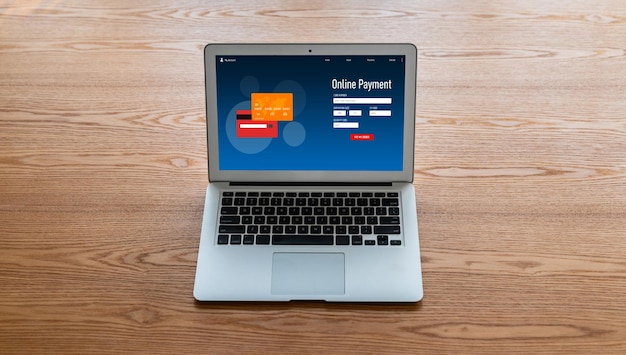Understanding Your Credit Report: Personal Finance Tips for US Residents

Understanding your credit report is crucial for maintaining financial health in the US; this report influences loan approvals, interest rates, and even job opportunities, making it essential to regularly review and manage it effectively.
In the realm of personal finance, understanding your credit report is paramount, especially for US residents. It’s not merely a record of your borrowing history; it’s a key determinant in various aspects of your financial life. Let’s delve into Personal Finance Tips for US Residents: Understanding Your Credit Report, equipping you with the knowledge to navigate and leverage this vital document.
What is a Credit Report and Why Does it Matter?
A credit report is a detailed summary of your credit history. It includes information about your payment history, outstanding debts, and credit accounts. It’s crucial because lenders use it to assess your creditworthiness, which directly impacts your ability to secure loans, mortgages, and even rent an apartment.
Understanding the components of your credit report can empower you to manage your finances more effectively. Let’s break down why it really matters.
Key Components of a Credit Report
A credit report is composed of several sections, each providing a different piece of information about your financial behavior.
- Personal Information: This includes your name, address, Social Security number, and date of birth.
- Credit Accounts: Details about your credit cards, loans, and other credit lines, including account numbers, credit limits, balances, and payment history.
- Public Records: Information from court records, such as bankruptcies, tax liens, and judgments.
- Inquiries: A list of entities that have accessed your credit report within the past two years.
Why Your Credit Report Matters
Your credit report is more than just a historical record; it’s a critical tool that influences your access to financial products and services.
It affects your ability to:
- Obtain Loans: Lenders use your credit report to assess the risk of lending you money. A good credit report increases your chances of approval and securing favorable interest rates.
- Rent an Apartment: Many landlords check credit reports to evaluate potential tenants’ reliability in paying rent.
- Get a Job: Some employers, especially in the financial sector, review credit reports as part of their background checks.
- Secure Lower Insurance Rates: Insurers sometimes use credit information to determine premiums.
Understanding the importance of each component and how they interrelate can empower you to proactively manage your finances and maintain a healthy credit profile. Regular reviews of your credit report are essential for spotting errors, detecting fraudulent activities, and ensuring that your financial information is accurate and up-to-date.
Accessing Your Credit Report for Free
US residents have the right to access their credit reports for free. The Fair Credit Reporting Act (FCRA) entitles you to one free credit report annually from each of the three major credit bureaus: Equifax, Experian, and TransUnion.
Accessing your credit report regularly is a proactive step towards maintaining financial health. Here’s how you can do it without incurring any costs.

AnnualCreditReport.com
The official website to obtain your free credit reports is www.annualcreditreport.com. This site is authorized by the FCRA and allows you to request reports from Equifax, Experian, and TransUnion.
When accessing this site:
- Ensure you are on the legitimate website to avoid scams.
- Be prepared to provide personal information to verify your identity.
- You can request all three reports at once or stagger them throughout the year.
Staggering Your Reports
A smart strategy is to stagger your requests throughout the year. This way, you can monitor your credit health more frequently without paying fees. For example:
- Request your Equifax report in January.
- Request your Experian report in May.
- Request your TransUnion report in September.
Additional Free Reports
In addition to the annual free reports, you are also entitled to a free credit report under specific circumstances:
- If you have been denied credit, insurance, or employment within the past 60 days.
- If you are unemployed and intend to apply for employment within 60 days.
- If you are on public assistance.
- If you believe your credit report contains inaccuracies due to fraud or identity theft.
By regularly accessing and reviewing your credit reports through these free methods, you can stay informed about your credit status, identify any discrepancies, and take timely actions to maintain a healthy credit profile.
Understanding the Scores: FICO and VantageScore
Credit scores are numerical representations of your creditworthiness. The two most common scoring models are FICO and VantageScore. Lenders use these scores to quickly assess your credit risk.
FICO and VantageScore each have unique attributes, but both serve the primary purpose of quantifying your credit risk for potential lenders. Let’s explore the differences.
FICO Score
The FICO score is the most widely used credit scoring model. It was created by Fair Isaac Corporation and is based on several factors:
These factors include:
- Payment History (35%): The most critical factor, reflecting whether you pay your bills on time.
- Amounts Owed (30%): The amount of debt you have relative to your credit limits.
- Length of Credit History (15%): How long you’ve had credit accounts.
- New Credit (10%): Recent credit applications and new accounts.
- Credit Mix (10%): The variety of credit accounts you have (e.g., credit cards, loans).
FICO scores range from 300 to 850, with higher scores indicating lower credit risk. Knowing your FICO allows you to assess how lenders might perceive your creditworthiness.
VantageScore
VantageScore is a credit scoring model developed jointly by the three major credit bureaus: Equifax, Experian, and TransUnion. It is designed to be more predictive and accessible than the FICO score.
Like the FICO score, VantageScore also considers several factors, but with slightly different weights:
- Payment History (Extremely Influential): Similar to FICO, this is the most critical factor.
- Age and Type of Credit (Highly Influential): Includes the age of your oldest account and the mix of credit types.
- Credit Utilization (Highly Influential): The amount of your available credit that you are using.
- Total Balances/Debt (Moderately Influential): The total amount you owe across all accounts.
- New Credit (Less Influential): Recent credit applications and new accounts.
- Available Credit (Less Influential): The amount of unused credit available to you.
VantageScore also ranges from 300 to 850, making it easy to understand in comparison to the FICO score. Monitoring your VantageScore can provide a comprehensive view of your credit standing across all three major bureaus.
Understanding both FICO and VantageScore can help you make informed decisions about managing your credit and improving your financial health. Regular monitoring of these scores allows you to benchmark your creditworthiness and address any negative factors promptly.
Disputing Inaccuracies on Your Credit Report
Errors on your credit report can negatively impact your credit score and financial opportunities. It’s crucial to review your credit report regularly and dispute any inaccuracies you find.
Disputing errors on your credit report is a vital step in maintaining a healthy credit profile. Here’s how to navigate the dispute process effectively.

Identifying Errors
The first step in disputing inaccuracies is to carefully review your credit report. Common errors include:
- Incorrect Personal Information: Such as misspelled names, wrong addresses, or incorrect Social Security numbers.
- Inaccurate Account Information: Including closed accounts listed as open, incorrect credit limits, or wrong payment statuses.
- Duplicate Accounts: Multiple listings of the same account.
- Fraudulent Activity: Accounts opened without your permission, indicating identity theft.
Filing a Dispute
Once you identify an error, you need to file a dispute with the credit bureau that issued the report. Each bureau has a specific process for handling disputes:
- Online: Most credit bureaus allow you to file a dispute through their website.
- By Mail: You can also send a dispute letter by certified mail, which provides proof of delivery.
What to Include in Your Dispute
Your dispute should include the following:
- A clear explanation of the error.
- Supporting documentation, such as payment records or account statements.
- Your full name, address, and Social Security number.
- A copy of your credit report highlighting the disputed item.
The Investigation Process
The credit bureau is required to investigate your dispute within 30 days. They will contact the creditor or data provider to verify the information.
After the investigation, the bureau will notify you of the results. If the error is verified, it will be corrected or removed from your credit report.
By diligently monitoring your credit report and promptly disputing any inaccuracies, you can safeguard your credit score and ensure that your financial profile accurately reflects your credit history.
Strategies for Improving Your Credit Score
Improving your credit score can open doors to better financial opportunities. Several strategies can help you boost your score over time.
A higher credit score will lead to many benefits. Here are some time-tested strategies.
Pay Bills on Time
Payment history is the most significant factor in your credit score. Make sure to pay all your bills on time, every time.
Strategies to ensure timely payments:
- Set up automatic payments for recurring bills.
- Use calendar reminders to track due dates.
- Contact creditors immediately if you anticipate a late payment.
Reduce Credit Utilization
Credit utilization is the amount of credit you are using compared to your total available credit. Aim to keep your credit utilization below 30%.
Tips to lower credit utilization:
- Pay down your credit card balances.
- Request a credit limit increase.
- Use multiple credit cards and spread out your spending.
Avoid Opening Too Many New Accounts
Opening multiple new credit accounts in a short period can lower your average account age and increase the number of credit inquiries, negatively impacting your score.
Recommendations for managing new accounts:
- Only open new accounts when necessary.
- Space out credit applications over several months.
- Avoid applying for multiple credit cards at once.
Monitor Your Credit Report Regularly
Regularly reviewing your credit report allows you to identify errors and potential issues early on.
Benefits of regular credit monitoring:
- Detect fraudulent activity promptly.
- Ensure accuracy of your credit information.
- Track your progress in improving your credit score.
By implementing these strategies consistently, you can gradually improve your credit score, paving the way for better financial opportunities and enhanced financial stability.
Protecting Yourself from Identity Theft
Identity theft can wreak havoc on your credit and financial well-being. Taking proactive steps to protect yourself is essential in today’s digital age.
Here’s how to protect yourself from identity theft:
Monitor Your Credit Reports
Regularly check your credit reports for any unauthorized accounts or suspicious activity.
Steps for effective credit monitoring:
- Request your free credit reports from AnnualCreditReport.com.
- Consider using a credit monitoring service for real-time alerts.
- Review your credit reports at least once a year.
Secure Your Personal Information
Protect your Social Security number, credit card numbers, and other sensitive information.
Best practices for securing personal data:
- Shred documents containing personal information before discarding them.
- Be cautious about sharing personal information online or over the phone.
- Use strong, unique passwords for your online accounts.
Be Wary of Phishing Scams
Phishing scams are designed to trick you into providing personal information. Be cautious of unsolicited emails, texts, or phone calls asking for personal data.
Tips for avoiding phishing scams:
- Never click on links or attachments from unknown sources.
- Verify the legitimacy of requests for personal information.
- Be skeptical of urgent or threatening messages.
Place a Credit Freeze
A credit freeze restricts access to your credit report, making it more difficult for identity thieves to open new accounts in your name. Placing a credit freeze can be done at no cost.
Steps to place a credit freeze:
- Contact each of the three major credit bureaus (Equifax, Experian, and TransUnion).
- Follow their instructions for placing a freeze on your credit report.
- Remember to lift the freeze when you need to apply for credit.
By taking these precautions, you can significantly reduce your risk of becoming a victim of identity theft and protect your credit and financial health.
| Key Point | Brief Description |
|---|---|
| 📊 Check Regularly | Review your credit report at least once a year for errors and fraud. |
| 💰 Pay On Time | Always pay your bills on time to maintain a positive payment history, which is crucial for your score. |
| 🔒 Stay Secure | Protect your personal information and be cautious of phishing scams to prevent identity theft. |
| 📉 Reduce Debt | Lower your credit utilization by keeping your balances low compared to your credit limits. |
FAQ Section
▼
It’s recommended to check your credit report at least once a year. You can obtain a free credit report from each of the three major credit bureaus annually through AnnualCreditReport.com.
▼
A good credit score typically ranges from 670 to 739 on the FICO scale. Scores above 740 are considered very good, and those above 800 are excellent. These scores improve your chances for loans and credit cards.
▼
Most negative items, such as late payments and collections, can stay on your credit report for up to seven years. Bankruptcies can remain for up to ten years, depending on the type of bankruptcy.
▼
The most influential factors are your payment history and amounts owed. Consistently paying bills on time and maintaining low credit utilization are key to a good credit score.
▼
Closing a credit card can potentially lower your credit score if it reduces your overall available credit. This can increase your credit utilization, which negatively impacts your score. Keep old cards open to maintain credit.
Conclusion
Understanding and managing your credit report is a cornerstone of personal finance for US residents. By regularly accessing and reviewing your credit reports, disputing inaccuracies, and implementing strategies to improve your credit score, you can take control of your financial future and unlock a world of opportunities.





